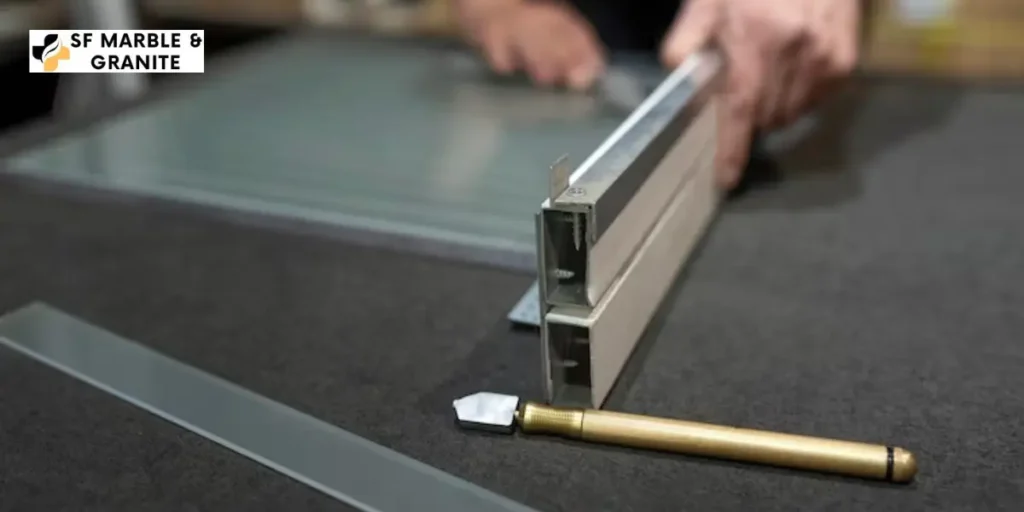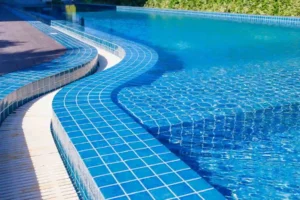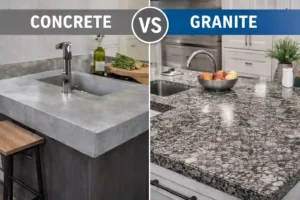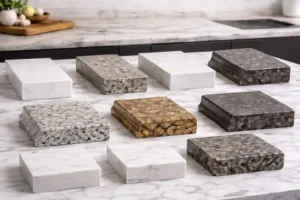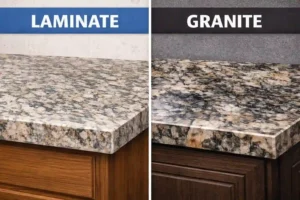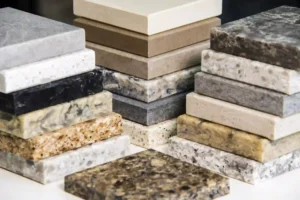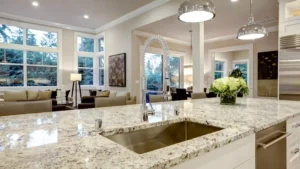Sealing granite countertops is a crucial step in preserving their timeless beauty and enhancing durability. In this guide, we delve into the essentials of granite sealing, providing a step-by-step approach, cost insights, and expert tips to keep your countertops looking pristine.
At SF Marble and Granite Inc, we bring decades of expertise to the forefront. As industry leaders, our commitment extends beyond information—we’re dedicated to ensuring your granite surfaces receive the care they deserve. Trust SF Marble and Granite Inc to be your guide in mastering the art of sealing granite countertops permanently for lasting elegance.
Why Sealing Granite Countertops Matters
Granite countertops, known for their exquisite beauty and durability, are an investment in the elegance of your space. However, to truly appreciate and maintain their allure, sealing becomes paramount. Unsealed granite is vulnerable to stains, moisture absorption, and potential damage from daily use.
Sealing acts as a protective shield, preventing liquids and oils from penetrating the porous surface of the granite. This not only guards against unsightly stains but also inhibits the growth of bacteria and mold. Beyond protection, sealing enhances the natural colors and patterns of the granite, ensuring that your countertops remain a focal point of sophistication in your home.
In essence, the meticulous act of sealing granite countertops is a proactive measure, ensuring that your investment stands the test of time and retains its original allure. As we explore the significance of this process, remember that the key to long-lasting, impeccable granite lies in the care you invest today.
How to Seal Granite Countertops – A Step-by-Step Guide
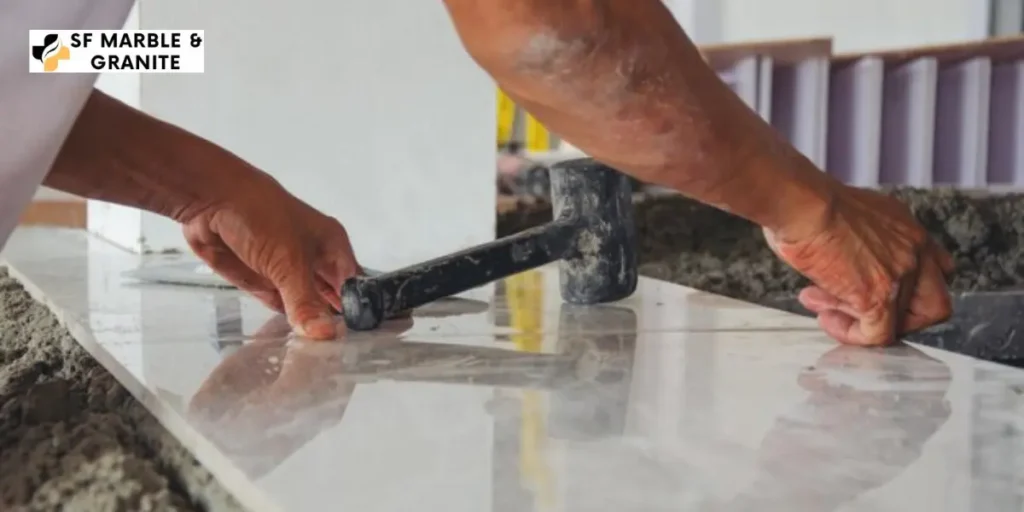
Sealing granite countertops is a straightforward process that ensures the longevity and beauty of your investment. Follow these simple steps to master the art of granite sealing:
Choose the Right Sealer
- Select a best granite sealer suitable for your specific type of granite.
- Consider factors like porosity and color variation in your granite to make an informed choice.
Preparation Steps
- Clean the countertops thoroughly with a granite-friendly cleaner to remove any dirt or residues.
- Allow the countertops to dry completely before starting the sealing process.
Application Techniques
- Pour a small amount of the chosen sealer onto the granite surface.
- Use a clean, lint-free cloth or a soft applicator brush to spread the sealer evenly.
- Ensure complete coverage, paying special attention to seams and edges.
- Let the sealer penetrate the granite for the recommended time, typically 15-30 minutes.
Wipe Off Excess Sealer
- After the recommended time, use a dry, clean cloth to wipe off any excess sealer.
- Pay attention to any streaks or spots, ensuring a uniform finish.
Allow to Cure
- Let the sealed countertops cure for at least 24 hours before resuming regular use.
- Avoid placing heavy objects or exposing the surface to moisture during this curing period.
Following these steps will not only protect your granite countertops installation from stains but also enhance their natural beauty. Regularly sealing your granite ensures a long-lasting, resilient surface that remains a standout feature in your home.
Granite Sealer vs Polish – What’s the Difference?
Granite countertops are a luxurious addition to any space, but understanding the difference between sealing and polishing is key to proper maintenance.
Sealing Granite Countertops
- Purpose: Sealing is a protective measure against stains and moisture absorption.
- Application: A sealer is typically applied to the clean, dry surface of granite.
- Function: Sealer penetrates the stone, creating a protective barrier without altering the appearance.
- Frequency: It’s recommended to seal granite countertops periodically, depending on usage and porosity.
Polishing Granite Countertops
- Purpose: Polishing enhances the aesthetic appeal of granite, bringing out its natural shine.
- Application: Granite polish is applied to a clean and dry surface, often after sealing.
- Function: Polish acts as a topical treatment, adding luster and depth to the surface.
- Frequency: Polishing is done less frequently than sealing, as it focuses on aesthetics rather than protection.
Choosing Between Sealing and Polishing
- If your primary concern is protection against stains and moisture, sealing is essential.
- If you want to restore or enhance the granite’s natural shine, polishing is the preferred choice.
In summary, sealing and polishing serve distinct purposes in granite maintenance. Sealing guards against damage, while polishing elevates the aesthetic appeal. Combining both ensures your granite countertops remain not only well-protected but also visually stunning.
The Cost of Sealing Granite Countertops
Understanding the cost factors associated with sealing granite countertops is crucial for homeowners seeking to preserve the longevity and aesthetics of their investment.
Factors Influencing Sealing Costs
Granite Type and Porosity
- Different granite varieties have varying porosities, influencing the amount of sealer required.
- Exotic or rare granite may demand a specialized sealer, impacting costs.
Sealer Quality
- High-quality sealers often come at a higher price but offer superior protection.
- Investing in a reputable brand ensures lasting results and minimizes reapplication frequency.
Professional vs. DIY Sealing
- Hiring professionals for sealing incurs service charges but guarantees expertise.
- DIY sealing kits are cost-effective, but the quality of application may vary.
Size of the Countertop Area
- Larger countertop surfaces naturally require more sealer, affecting overall costs.
- Some sealers come in different coverage options, allowing for cost adjustments based on the project size.
Frequency of Sealing
- Regular sealing is essential, but the frequency may impact the long-term cost.
- High-quality sealers may offer prolonged protection, potentially reducing the need for frequent resealing.
Long-Term Investment Benefits
While there is an initial cost associated with sealing granite countertops, it’s essential to view it as a long-term investment. Proper sealing protects against stains, scratches, and moisture, ultimately extending the lifespan of your granite surfaces. This upfront investment can save you money on potential repairs or replacements in the future.
In conclusion, understanding the factors influencing sealing granite countertops cost allows homeowners to make informed decisions, balancing upfront expenses with the long-term benefits of a well-maintained and aesthetically pleasing kitchen or bathroom space.
Resealing Granite Countertops – Why and When?
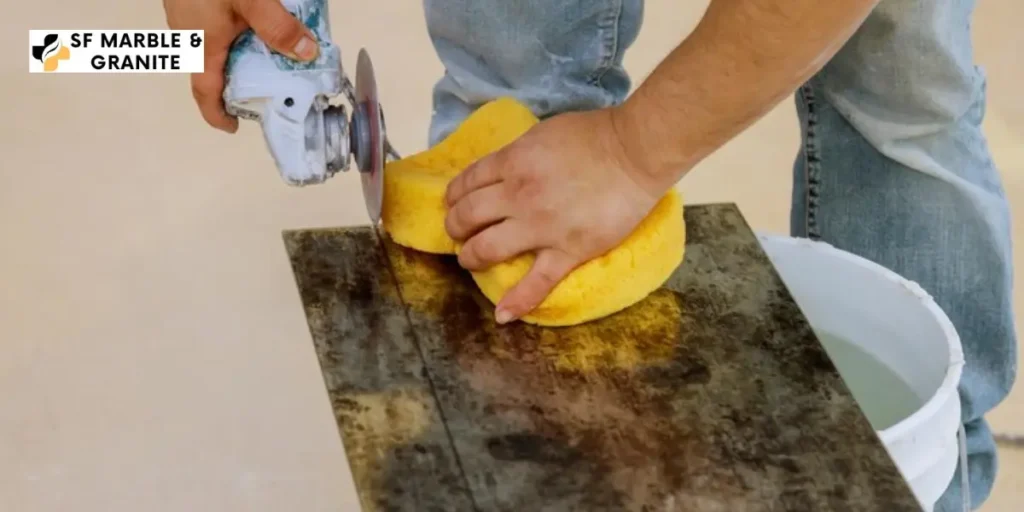
Granite countertops, though resilient, benefit from periodic resealing to maintain their protective barrier and aesthetic appeal. Understanding the why and when of resealing is essential for preserving the longevity of your granite surfaces.
Why Reseal Granite Countertops?
Wear and Tear
- Over time, the protective sealer on granite countertops can wear off due to regular use, cleaning, and exposure to various elements.
- Resealing restores the protective layer, preventing stains and damage.
Preventing Stains
- Resealing is crucial for preventing stains caused by spills, oils, and acidic substances that can penetrate the porous surface of granite.
Maintaining Appearance
- Regular resealing enhances the natural colors and patterns of the granite, preserving its original aesthetic appeal.
Bacterial Growth Prevention
- Resealing inhibits the growth of bacteria and mold by preventing moisture absorption into the granite.
When to Reseal Granite Countertops?
Perform a Water Test
- Drip water onto the countertop; If it absorbs, it’s time to reseal.
Visible Signs of Wear
- If the granite surface shows signs of dullness, increased porosity, or stains, it’s a clear indicator that resealing is needed.
Regular Maintenance Schedule
- As a general guideline, resealing every 1-3 years, or as recommended by the sealer manufacturer, ensures continuous protection
After Deep Cleaning
- If you’ve used strong cleaners or abrasive materials, consider resealing afterward to replenish the protective layer.
In essence, resealing granite countertops is a proactive measure to ensure ongoing protection against daily wear and tear. Regular maintenance not only preserves the integrity of the granite but also sustains its timeless elegance for years to come.
Conclusion
In wrapping up our exploration of sealing granite countertops, remember that this simple yet crucial process is the key to preserving the beauty and integrity of your investment. By following our step-by-step guide, you’ve empowered yourself to protect against stains, enhance the natural allure of your granite, and ensure its longevity. Regular maintenance, including resealing when necessary, is the secret to enjoying your impeccable granite countertops for years to come.
For expert advice or professional assistance in maintaining your granite surfaces, feel free to reach out to SF Marble and Granite Inc. You can contact us via email at sfmarbleandgranite@gmail.com or visit our location at 755 Dutton St, Lowell, MA 01854. For immediate assistance, call us at 978-459-58. Trust SF Marble and Granite Inc to be your partner in preserving the elegance of your home with top-notch granite care.
FAQs
Is sealing granite countertops necessary?
Yes, sealing granite countertops is essential for protecting against stains, moisture absorption, and bacterial growth. It preserves the longevity and aesthetic appeal of your granite surfaces.
How often should I seal my granite countertops?
The frequency of sealing depends on factors like granite type, usage, and the sealer used. Generally, resealing every 1-3 years, or as recommended by the sealer manufacturer, is advisable.
How can I tell if my granite countertops need resealing?
Conduct a water test by dripping water onto the countertop. If it beads up, the seal is intact. If it absorbs, it’s time to reseal. Additionally, signs of dullness, increased porosity, or stains indicate the need for resealing.
Can I seal granite countertops myself, or should I hire a professional?
Both options are viable. DIY sealing kits are available, but for optimal results and expertise, hiring professionals is recommended, especially for intricate or large countertop surfaces.
What’s the difference between sealing and polishing granite countertops?
Sealing focuses on protection against stains and moisture, while polishing enhances the aesthetic appeal by adding shine. Both processes serve different purposes in maintaining granite surfaces.

